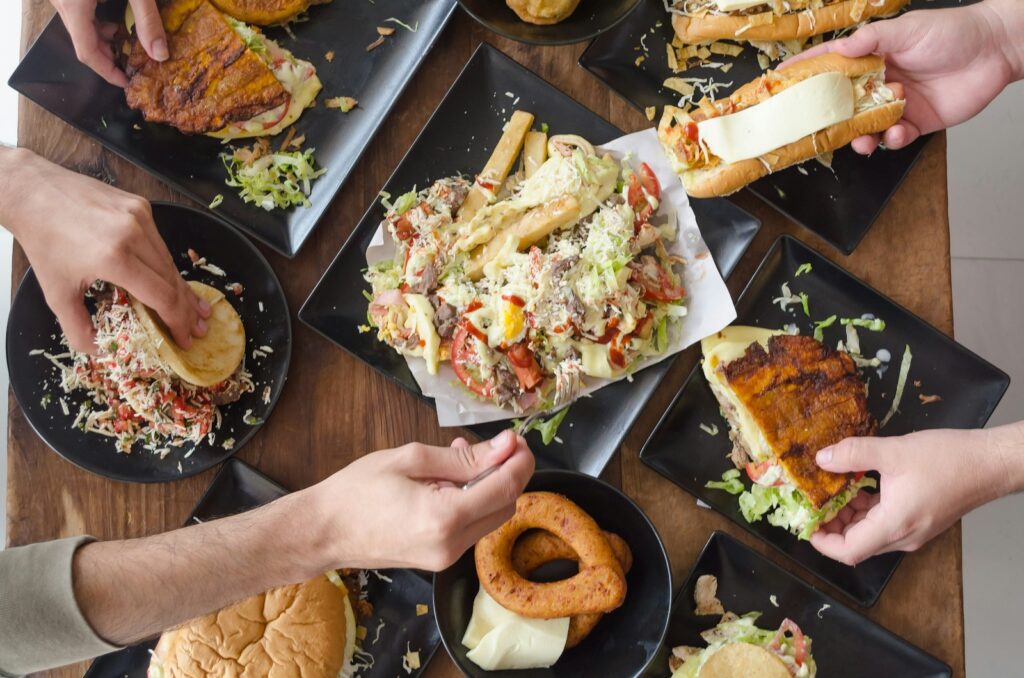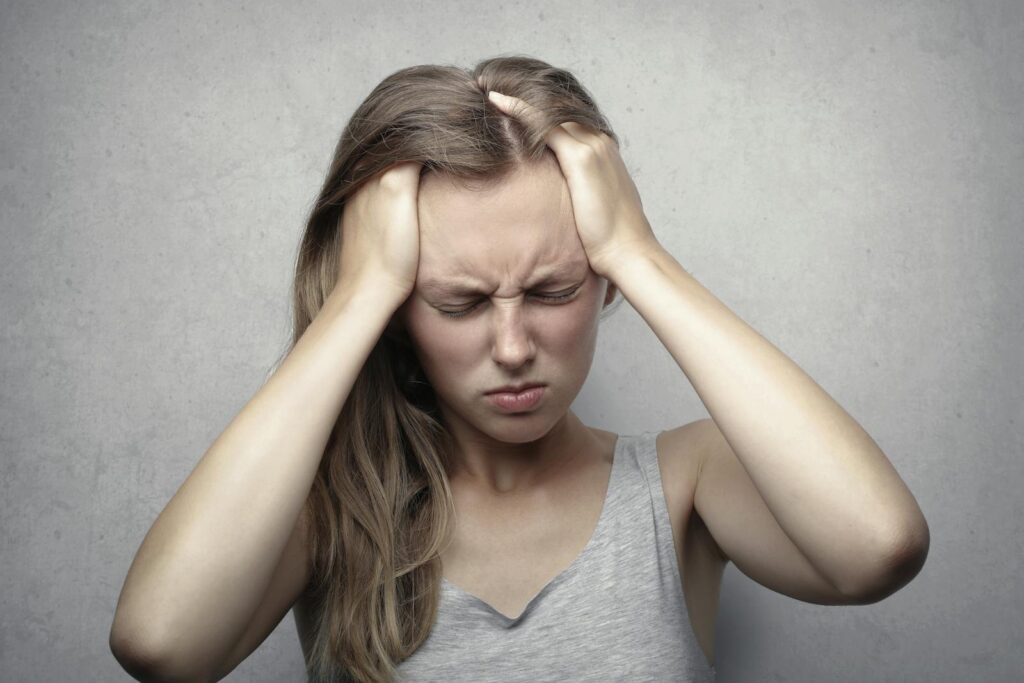
Ever feel like you just ate, but your stomach’s already growling again? Constant hunger isn’t always about needing more food—it can be tied to your habits, your sleep, or even what you’re putting on your plate. Here are 14 surprising and real reasons why you might always feel hungry, even when it seems like you’ve had enough.
When You Eat Too Many Refined Carbs

Foods like white bread, sugary cereals, or pastries can fill you up for a moment, but they burn through your system fast and leave you feeling hungry again soon after. That’s because refined carbs cause a spike in blood sugar followed by a sharp crash, which can trigger more cravings, especially for sugar and more carbs, putting you in a constant hunger loop.
When You’re Not Drinking Enough Water

Sometimes, your body confuses thirst for hunger, and if you’re not drinking enough water, you might find yourself reaching for snacks instead. When you’re dehydrated, your brain gets mixed signals, making you think you need food when what you really need is a glass of water. Staying hydrated helps regulate appetite and makes it easier to tell real hunger from fake cravings.
When You Skimp on Protein

If you’re not getting enough protein, your meals might not be keeping you full for long. Protein is one of the most satisfying nutrients—it helps regulate hunger hormones and slows down digestion, so you stay fuller longer. When meals are mostly carbs or fat and missing solid sources of protein like eggs, chicken, beans, or tofu, hunger can creep back quickly.
When You Don’t Get Enough Sleep

Limited sleep can throw off the balance of hormones that control hunger and fullness. Ghrelin, the hormone that makes you feel hungry, goes up, while leptin, which helps you feel full, drops. That means you’re more likely to feel constantly hungry and crave high-calorie comfort foods when you’re running on little sleep, even if your body doesn’t actually need more food.
When You Eat While Distracted

When you eat in front of the TV, scroll on your phone, or work through lunch, your brain doesn’t fully register what you’re eating. This disconnect can make you feel less satisfied after a meal, so you end up feeling hungry again sooner than you should. Being mindful while eating helps your body and brain sync up so you actually notice fullness.
When You’re Stressed Out All the Time

Chronic stress can seriously mess with your appetite. For some people, stress shuts hunger down, but for many, it does the opposite. High levels of cortisol—the stress hormone—can increase appetite, especially for sugary and fatty foods. If your stress never settles, your hunger cues might stay turned on longer than they should, making you think you need food constantly to feel better.
When You Eat a Lot of “Low-Fat” Foods

Foods labeled “low-fat” often have extra sugar or carbs to make up for the flavor lost when fat is removed. The problem is that fat helps keep you full and satisfied. Without it, your body may not register the meal as complete, so you’re more likely to feel hungry soon after. Sometimes, a little fat in your food is exactly what your body needs to feel full.
When You Skip Meals or Eat at Odd Hours

Skipping meals or eating at random times during the day can confuse your body and throw off your hunger signals. If your body doesn’t know when the next meal is coming, it may go into hunger mode more often than it should. Having regular meals helps keep your hunger hormones balanced and gives your body a rhythm that it can count on.
When You’re Not Eating Enough Fiber

Fiber does more than help digestion—it also slows down how fast your body processes food and helps you feel full longer. If your diet is low in fiber-rich foods like veggies, fruits, whole grains, or beans, you may feel hungrier even if you just ate. Fiber keeps your stomach busy and sends the right signals to your brain that it’s satisfied for a while.
When You Use Food to Deal with Emotions

Sometimes, hunger isn’t about your stomach—it’s about your feelings. If you often eat when you’re bored, sad, anxious, or even just out of habit, your body may start linking emotions with eating. This can make you feel hungry even when you’re not. Emotional hunger tends to come on suddenly and feels very urgent, while physical hunger builds more slowly and is tied to real body needs.
When You’re Moving More But Not Eating More

If you’ve started exercising more or spending more energy than usual but haven’t added extra food to balance it out, it makes sense that you’re hungrier. Your body needs fuel to support movement, and if you’re burning more but still eating the same, your hunger signals may be louder than usual. It’s not a bad thing—it’s your body asking for what it needs.
When You Drink Too Much Alcohol

Alcohol can lower your body’s ability to notice when it’s full, and it also increases hunger, especially for salty or fatty foods. After a few drinks, your body’s hunger signals can get scrambled, making you eat more than you normally would. Plus, alcohol can mess a lot with your blood sugar, which can cause that familiar post-drinking hunger even if you ate earlier.
When You’re Not Paying Attention to Portion Sizes

Sometimes, you might think you’re eating a full meal, but the portions are just too small to satisfy your hunger truly. If you’re relying on packaged foods or grabbing small bites here and there without a real meal, your stomach never really gets full. Your body needs enough food to function properly, so if you’re under-eating without realizing it, your hunger won’t go away.
When Your Hormones Are Out of Balance

Hormones play a big role in hunger, and if something is off—like thyroid issues, insulin resistance, or changes due to menopause or birth control—your appetite can be affected. You might feel hungry more often, even if you haven’t changed your routine. If nothing else seems to explain your constant hunger, it might be time to check in with a doctor about possible hormonal causes.
Leave a comment